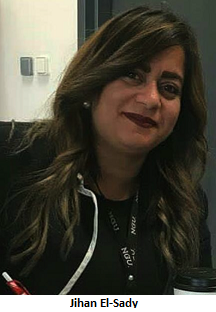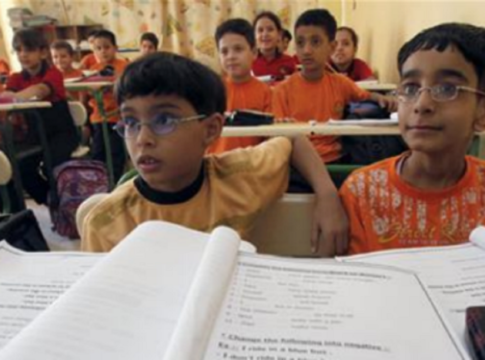The Middle East Observer have had the pleasure of interviewing Jihan El-Sady, an educational Expert for her perspectives regarding education systems in Egypt, challenges and recent developments.
Can you please tell us about the various education systems in Egypt?
Egypt has the largest overall education system in Africa; and this system has grown rapidly since the 1990s. We have two main educational systems in Egypt, the national system and the international system with its sub-divisions of the British, American, Canadian, German (Abitur) and French Bac.
Egypt has also witnessed a growth in early childhood education, which has spread widely in Egypt recently. These foundation years of education establish a strong base for early childhood education, as well as basic education.
The basic education, consists of pre-primary, and preparatory levels of education; in Egypt in the early 90’s and 2000 the total enrollment rate of pre-primary students was 16% and that increased to 24 % in 2009.
Recently the Egyptian government, has been trying to give greater priority to improving the education system in Egypt. According to the Human Development index (HDI), Egypt ranks 108 in the HDI and 9 in the lowest 10 HDI countries in the Middle East and North Africa in 2014.
In 2015, the international Schools Consultancy (ISC), listed Egypt as having 184 international schools. The ISC defines an “international school” as “ A school that delivers a curriculum that includes pre-school, primary or secondary in English to students in a non native English speaking country.”
The British system is similar to the Egyptian Thanaweya Amma (the national system), it is actually one of the toughest educational systems; as it has a lot of memorization and has tough A-level courses. As for the American system, it is based more on research and its grading system is based on attendance, research and projects submitted and exams; and this system is for sure less harder than the British system.
As for the Canadian system, it is a middle ground between the British and the American systems, it used to include a SAT exam, but not anymore.
As for the Abitur, the German system, it is one of the toughest and is usually for students who already went to through German schools. As for the French Bac, it is more or less similar to the British system.
In your opinion, what are the main challenges that are facing the educational system in Egypt?
Well, there are various challenges that are facing the educational system in Egypt, however one of the toughest challenges I believe is private tutoring. 58% of students in Egypt depend on private tutoring.
Private tutoring started out with students from the national system (due to the large number of students within a class room, that lead parents who can afford a private tutor to help out their children by devoting them private time); however, starting the 1990s, it became common for students within the international systems, specially within the British and the American systems.
Another big challenge is the lack of skilled teachers; we do have shortage of skilled teacher. Accordingly, we need to work heavily hiring/training skilled teachers who would be able to deliver educational content effectively and clearly in a class-room. On the other hand, Teachers within the national system take very low salaries, and for that reason they resort to private tutoring, tackling the financial aspect for teachers is a main factor in meeting this challenge.
Other challenges, lie within the poor school facilities and the hard curriculum that is given to students. Students are bombarded with a lot of information to memorize; they are required to pass the curriculum of the ministry of education along with the international curriculum; exams are really hard as well.

In your opinion, how can parents choose the best educational system that best suits their children?
What I noticed is that mothers, depend on the word of mouth more, when it comes to choosing the school of their kids; During the early years foundation stage, the mother should be closely monitoring the skills of her child and his ability; for her monitoring, the mother can really decide what can best suits her child; for example, if the child is advanced compared to his colleagues and exceeding in certain skills, as collecting more information, exceeding in fine motor skills, and speaking more words; she can choose the British, as this system needs a clever student.
The Canadian system is really moderate, it does not need an outstanding student.
As for the German and French systems; parents who can speak those languages tend to enroll their kids in these schools who do deliver quality education and content.
Can parents benefit from the moderate fees of the national and at the same time, take the privileges of the international education?
Some parents enroll their children in the national system and transfer their children prior to the high school to an international system.
The key is the curriculum offered by the school, some schools go very commercial and depend on selling the idea that kids will be thought the international curriculum since KG1, however, some national schools can have access to the international curriculum and they can teach it as well, if they do have the skilled teacher and the know how of teaching.
My advice is avoid exposing the student to various systems; if the mother and the teacher evaluate him/her right, the child should go one track along preferably one system; switching can cause also social problems for the student, as being separated from his friends. Switching in high school, from a national to an international system is acceptable; however, what should be avoided is switching from the British system for instance to the American system at the primary stage; it is a dilemma for the child.
What is your opinion, about the recent developments that the ministry of education is trying to apply?
The Egyptian minister of education Eng. Tarek Shawky, declared that the amendments at the high school system will be applied starting 2018/2019 academic year. The new system will have certain characteristics similar to the international system, like collaborative work between students, changing the system from studying to thinking and creating, accumulative exams over the last 3 years, and assigning online research for students.
I believe this step came really late; students within the national system and “Thanawya Amma” have been suffering for quite a long time; On the other hand, parents pay really unbelievable amounts of money for international schools, because there are no alternatives to guarantee proper returns on education.
Having access to an efficient system is a basic right for everyone; in my opinion early years must get concentrated development areas like language and communication development, personnel, social and emotional development, physical development, arts and design. I do believe the coming period must witness, more effort and really hard work on establishing a strong educational system in Egypt.


